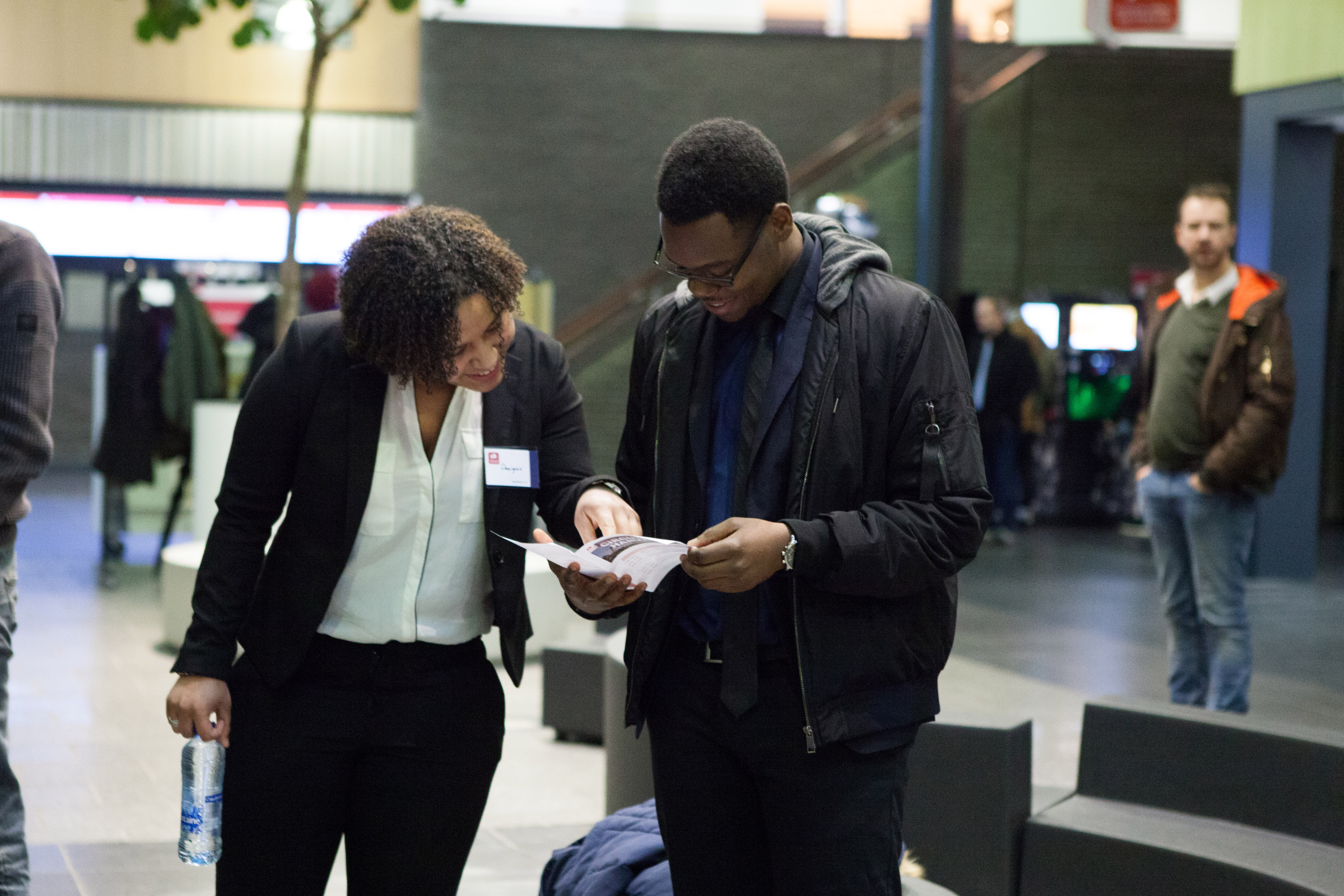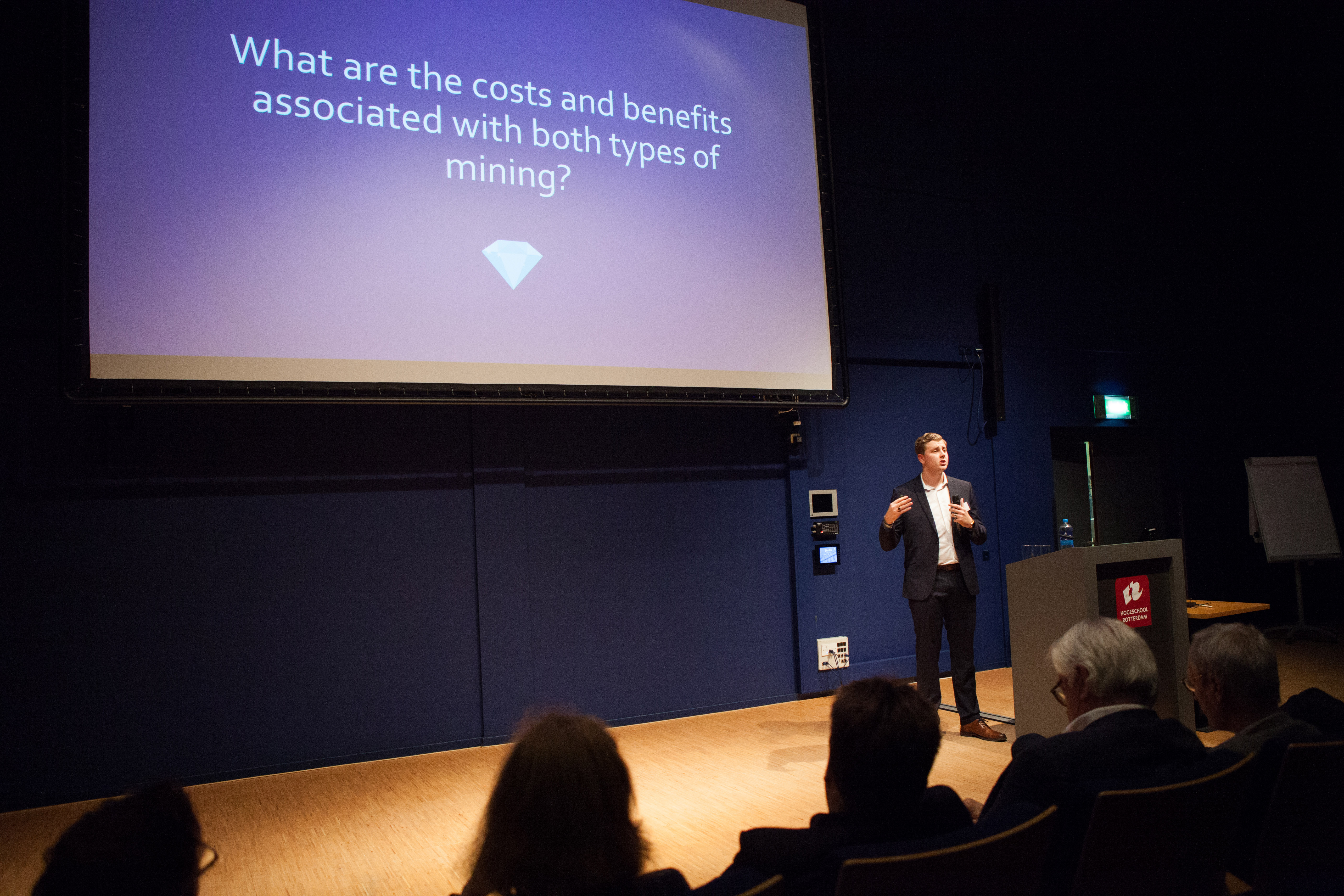She is one of the speakers on theme day ‘Circular Harvest’ at the Kralingse Zoom location of Rotterdam University of Applied Sciences. The event is part of the Week of Circular Economy and also the end of this year’s Minor Circular Economy & Business Innovation.
Together with other students, Esra conducted research for Blue City and graphic design studio VAST on the subject of offline promotional material. Blue city and VAST organised the Plastic Playground Festival and, as much as possible, aim for sustainable promotion. Esra: “The most used offline promo product for festivals in the Netherlands is a poster. Production of paper goes hand in hand with CO2. So we suggested using paper made from agricultural waste. That means not having to use a new resource. In addition, the ink that is commonly used harms the environment because there are chemicals involved. We are happy to have found out that we can also use biodegradable ink.”

It is merely one research example on the subject of circular solutions conducted by students. Hans Stegeman, head of research & investment at Triodos Investment Management is very satisfied with results. “I think it is wonderful that the students can demonstrate that we can opt for really practical solutions. Circular is not scary or expensive, or annoying. On the contrary, it is about smart solutions. And it is really fun to be involved, exciting and inspiring.”
Something needs to change
A festival poster produced in a circular manner may seem like a drop in the ocean, but many posters stand for many drops. “Maybe those little things are just as important because they promote awareness. But please do not misunderstand: rigorous changes are a must. The focus of our economy is still on unsustainable production. We take from nature, use it once, and throw it away.
The product itself may still have value. Which is why it is important for students to get involved and research possibilities.”
Another example is student Jason Bos, who is in his fourth year of International Business and Management Studies, and together with his fellow students has been digging for diamonds at a business in Russia. The CO2 emission can be reduced from 66.732 tonnes per year to 5157 tonnes per year, by not using machines but instead by having the groundwater do most of the ‘digging’. An immense difference. “This method is not only more friendly for the environment, but also cheaper for the business”, according to Jason. “As a group we can be really proud."

He is glad that during his studies at Rotterdam University of Applied Sciences he can focus on sustainability. “The subject has always fascinated me, but now that it is integrated in the study programme, I can really get into it. We need changes in this world. Hopefully as students we can substantially contribute to those changes.”
Executive Board member Zakia Guernina of Rotterdam University of Applied Sciences is proud of the students’ findings because they will be useful for businesses. “The goal is to help businesses with the necessary transition towards a circular economy. We must reuse raw materials, without loss of quality in production. It’s an important theme in our region as most industries must reduce their footprint, therefore also an important theme for our education. Rotterdam University of Applied Sciences contributes by means of the lectorate Circular Economy and the Field lab Circular Economy. How great that students learn to incorporate this principle even before they venture out into the business world!”
Our own footprint
With about 40,000 students and 4,000 employees, the theme Circular Economy is also a priority for the educational institution itself, according to Wijnand van den Brink, member of the Executive Board. As part of his portfolio Business Operations, he will delve into the subject this year, because the university of applied sciences aims to reduce its own footprint as much as possible.
